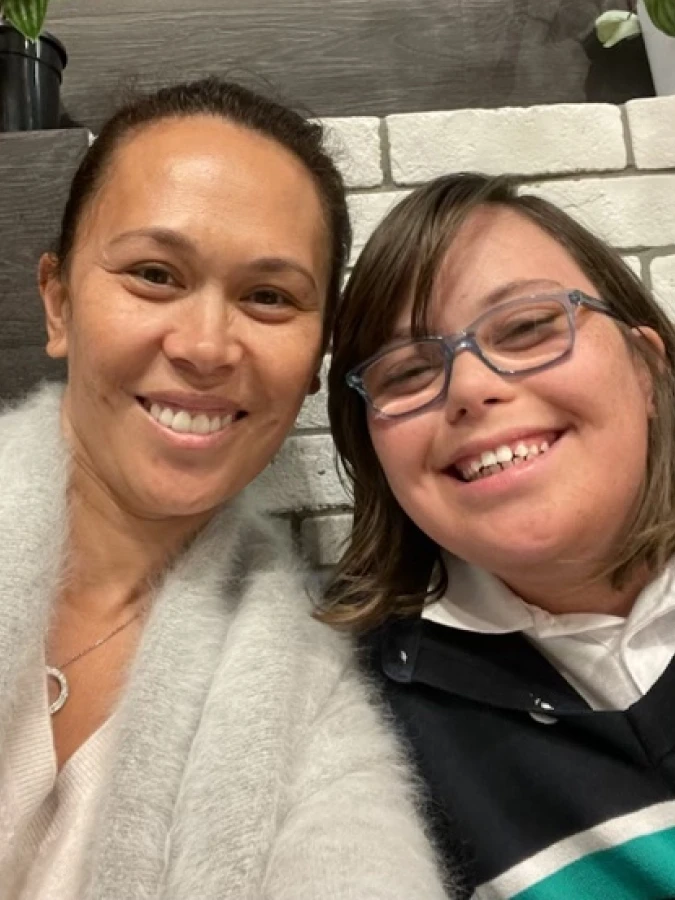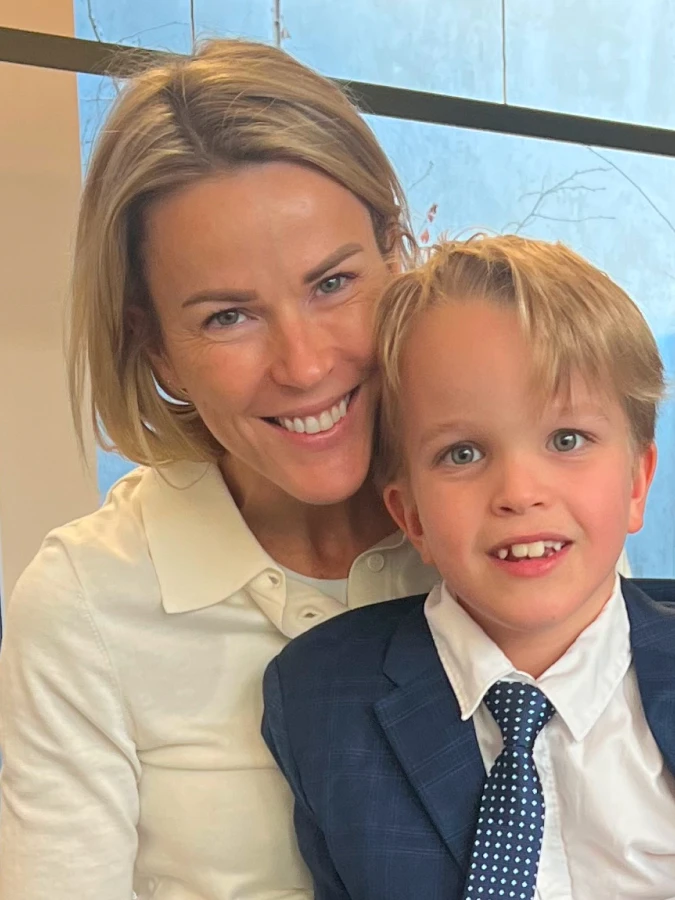The Bella Tripp Foundation is more than just a name.
It’s a tribute to a young girl whose heart overflowed with kindness and whose love knew no bounds. The Bella Tripp Foundation was established in August 2023 in loving memory of Isabella Claire Tripp – Bella.
Bella sadly passed away in April 2022 at aged 14 from a respiratory complication resulting from a bone marrow transplant following a lengthy battle with leukaemia.
The Foundation is a not-for-profit organisation whose fundraising aims to achieve early detection of, and treatment solutions for, respiratory complications arising from bone marrow transplants in children.
The Foundation wishes to reduce and hopefully one day eliminate the risk of these respiratory complications through raising awareness, providing researchers with much needed funding to tackle this issue, and providing children and families the support they need through their difficult journey.
Bella’s Story
Isabella Tripp, who was affectionately called Bella, was a beautiful young girl
who sadly lost her life in April 2022 at aged 14 due to respiratory complications from a bone marrow transplant following a lengthy battle with leukaemia.
Before we share Bella’s Story, we want you to know that Bella was never limited by the many medical diagnoses she would receive over her short lifetime. Despite these diagnoses, Bella would experience the joys of travel, learn to read, ride a bike, ski, horse riding and kneeboard on Lake Mulwala. She loved her food – salmon sushi and dumplings being her top picks.
She looked forward to the holidays throughout the year – Easter egg hunts, dressing up for Halloween and waiting for Santa. She was a girlie-girl – singing, dancing, dressing up, playing with her dolls, arts and crafts – a make up artist in the making! Bella was the original Doc McStuffins. She cared for her much loved Shih Tzu puppy Leo, bunny rabbits Joe and Rose, goldfish Goldie, Blackie and Spottie, along with her many other patients – her collection of soft toys, in particular her Piggy who went with her everywhere. Bella could fix any of their ailments. Sadly just not her own although she gave leukaemia the ‘fight of all fights’.

At Bella’s funeral, butterflies were released; as the colourful & majestic insects are said to symbolise change and transformation, comfort, hope, and positivity –
Bella symbolised all of these things in life and will continue to do so her death through the work of the Foundation in her name.
Bella was born in Melbourne on the 16th of September 2007 by emergency Caesarean section. In addition to being severely jaundiced after birth, Bella would soon receive the diagnosis of Down syndrome and having VSD – ventricular septal defect – a heart defect due to an abnormal connection between the lower chambers of the heart.
Bella’s first year was spent in and out of hospital.
Bella’s first year was spent in and out of hospital. She underwent corrective heart surgery at aged 3 months and needed to wear a nasogastric tube to assist feeding from birth to 9 months of age. It was during Bella’s first year that doctors noted leukemia was present at birth – a common complication of Down syndrome children. Bella’s white blood cell count was monitored routinely from aged 6 months to 11-years old when things looked positive that leukemia would not develop.
However, the year of 2020 that saw the world shut down as a result of the coronavirus also brought a diagnosis the Tripp family was not expecting – Bella had leukemia.
As the disease took hold, from 2020 to 2022, various medical interventions were introduced to give Bella the best chance of fighting the cancer. These included chemotherapy, radiotherapy, Chimeric Antigen Receptor (CAR) T-cell therapy and, finally, a bone marrow transplant.
Bella essentially spent her final years at the Royal Children’s Hospital (RCH) with few visits home of short duration.
Due to coronavirus protocols and being immunocompromised, Bella’s prolonged hospital stays were often isolating – only her mother, father and grandmother as carers were allowed to stay and even this was on a strict rotation. Bella missed her family, her friends, and attending her school. The loneliness left her often feeling overwhelmed and the horrific side effects from the invasive medical treatments she endured only made this worse.
Ironically, Bella rang the symbolic bell on the RCH’s cancer ward to indicate she was cancer free on the 23rd of June 2020 (although the leukaemia would return). What most don’t realise, and the reason the Foundation has been established, is it was not the cancer that killed Bella. Bella died from respiratory complications resulting from the bone marrow transplant she had received on the 24th of August 2021.
Bella experienced serious respiratory complications
following her transplant that required her to be repeatedly admitted to the RCH Intensive Care Unit (ICU) and, on several occasions, she needed to be placed in a medically induced coma, one coma lasting a week – seven excruciating, helpless days for the family. Bella’s medical team placed her in the medically induced coma to not only provide her depleted body time to rest and heal, but to afford them an opportunity to work out what was causing her issues. This investigative quest took multiple surgical procedures (including a lung biopsy) to confirm what was going on.
Eventually Bella’s medical team identified what was causing her issues, but unfortunately they did not have an effective treatment. Even when Bella could leave hospital for short periods at home, she still had to use oxygen support. During Bella’s final days, she was battling all of the irreversible damage that had occurred to her lungs. Her ability to simply breathe was a struggle even with oxygen support. On the 8th of April 2022, Bella took her last breath. She passed away in the early hours of the morning as a result of her respiratory complications associated with her bone marrow transplant.
Bella’s Legacy
Unfortunately, there are many children and families who have an experience similar to Bella due to respiratory complications of bone marrow transplant:
delayed diagnoses, invasive tests, ineffective treatments, prolonged hospital admissions (including in ICU), and poor outcomes.
Bella’s death will not be in vain. The Bella Tripp Foundation will support targeted research that aims to:
- improve the understanding of causes of lung complications
- discover better diagnostic tests that identify lung complications more promptly and in a less invasive manner, and
- identify better treatments.
The Foundation wishes to support Australian based multi-disciplinary research teams who have the expertise needed to address these issues to ensure the same issues experienced by Bella, and many other children around the world, are never experienced again.
In honour of Bella Tripp (or Bella T), the Foundation is working towards:
It is Bella’s legacy and the work of the Foundation that will facilitate the much-needed funding to help researchers understand the respiratory complications of bone marrow transplants in children.
Your donation today could help fund a child’s tomorrow. Thank you.
Respiratory
complications

The journey for a child and their family when treating a disease like leukemia is long, and requires many invasive medical treatments.
These treatments take a heavy toll on not just the body but the mental health of the child and their loved ones.
For children with leukemia, where conventional treatments such as chemotherapy has not worked or is no longer effective, a bone marrow transplant (BMT) is often the solution. BMT is also used as a curative treatment for a range of other medical conditions.
Whilst a BMT offers a second chance, it comes with potential life-threatening and lifelong complications. A staggering 52% of children who have a BMT experience respiratory complications. Respiratory complications can result in debilitating side effects such as poor exercise tolerance, prolonged hospital stays (including intensive care), the need for supplemental oxygen at home and, in worst cases, death.
Each year, globally, approximately 5000 children undergo BMT.
Unfortunately, many will suffer respiratory complications such as:
- Lung infection.
- Alveolar haemorrhage a rare but deadly condition where blood fills the tiny air sacs in the lungs, causing breathing problems and low oxygen levels
- Graft vs. host disease where cells from the child’s new bone marrow attack their lung.
- Interstitial lung disease.
A large group of disorders which cause progressive scarring of lung tissue affecting the ability to breathe and get enough oxygen into the bloodstream. These complications often result in long-term impairment, reducing respiratory capacity and increasing the need for respiratory support.
Children who have a respiratory complication have nearly a 5-fold increased chance of dying within five years of their transplant when compared to those children who do not have a complication.
With your support, the Bella Tripp Foundation will fund targeted research in improving researchers understanding of BMT replated respiratory complications, identifying new treatments and supporting earlier diagnosis.






